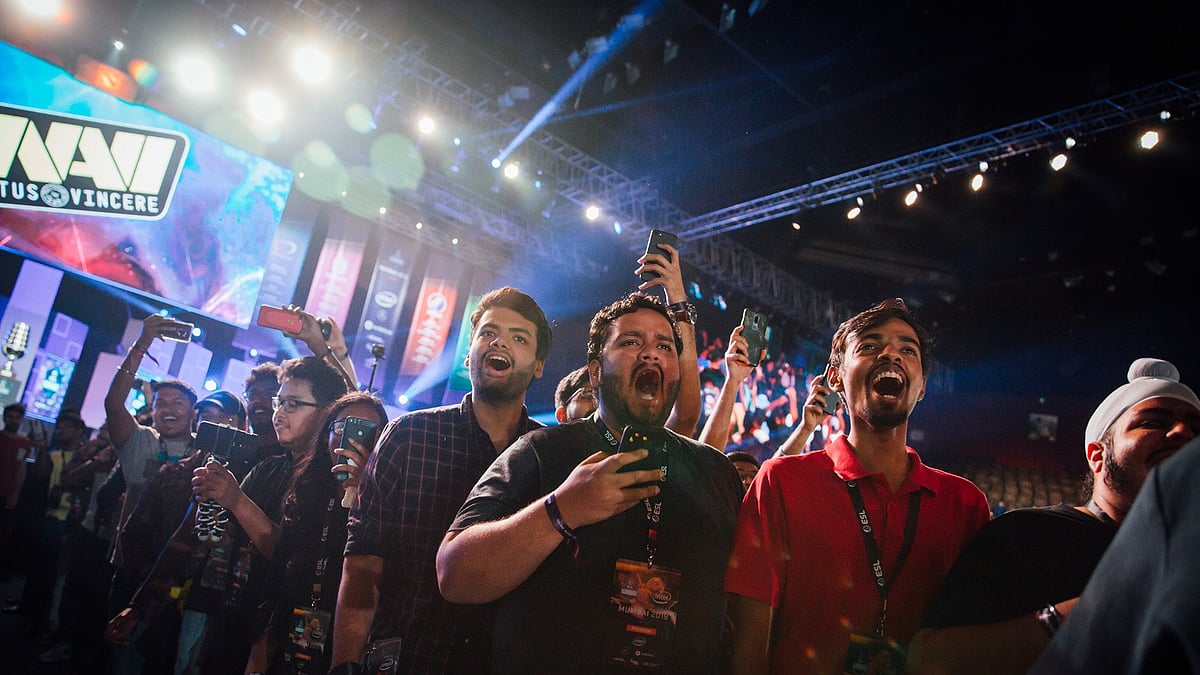
India's Gaming Revolution: A New Era Begins
India's Gaming Revolution: A New Era Begins
As Outlook Respawn launches, India's gaming industry stands at a historic crossroads
Today marks a pivotal moment, not just for Outlook Respawn as we launch India's first stakeholder-focused publication covering gaming, esports, and pop culture, but for the entire Indian gaming ecosystem. Right out of the gates we find ourselves documenting what may be the most significant regulatory shift in Indian gaming history.
The Promotion and Regulation of Online Gaming Bill, 2025, introduced in Parliament, represents a fundamental reimagining of how India approaches digital entertainment, competitive gaming, and the blurred lines between skill and chance that have long plagued this industry.
What the Bill Actually Says
The bill formally recognizes "online social games," which it defines as games used for educational and recreational purposes. These games can charge subscription fees or one-time access fees, but they cannot involve any form of monetary stakes or gambling elements.
It also extends similar support to esports which is recognized as legitimate competitive activities that deserve government support. Under this framework, the government will establish training academies and research centers dedicated to esports development. The legislation also promises to facilitate India's participation in international tournaments.
But the prohibitive measures are far broader. The legislation bans all "online money games," a category encompassing any digital game where users deposit funds expecting monetary returns, with specific exceptions carved out for legitimate esports competitions that allow registration fees for performance-based prizes. This definition explicitly includes both skill-based and chance-based games, effectively overriding traditional legal distinctions that have governed Indian gaming regulation.
Operators who violate the ban face up to three years imprisonment and ₹1 crore fines, with mandatory minimum sentences for repeat violations, while financial institutions are prohibited from processing payments to banned platforms. Advertising restrictions are equally comprehensive: anyone promoting online money games through any medium, including social media influencers and celebrity endorsers, faces up to two years imprisonment and fifty lakh rupee fines.
Authorities will also receive expansive powers to block websites, conduct searches of digital infrastructure, and pursue cross-border investigations.
A central Authority will determine which games qualify for protection versus prohibition. The bill provides no specifics about this body's composition, member qualifications, or decision-making processes, leaving the industry's regulatory fate in undefined hands.
Power, Control, and the Authority Question
The bill's most significant transformation isn't what it prohibits, but how it fundamentally reshapes regulatory power in India. By asserting Union jurisdiction over online gaming, including extraterritorial operations, New Delhi has upended decades of state-level gaming governance and concentrated control in central government hands.
States that invested years developing nuanced gaming policies now find their autonomy curtailed. Telangana, which pioneered supportive frameworks for gaming companies, and Tamil Nadu, which took hardline stances against certain formats, must now defer to central authority. While this centralization promises regulatory uniformity after years of state-by-state confusion, it also raises fundamental questions about who will wield this unprecedented power.
At the heart of this power shift lies what may be the bill's most consequential provision: the establishment of an Authority that will determine the fate of every gaming company in India.
However, the bill is vague about this body's composition. While it does state that the central government may prescribe the composition and qualifications of the Authority's chairperson and members, it provides no specifics about what those qualifications might entail. There are no explicit requirements for expertise in gaming technology, esports formats, or assurance that decision-makers will understand the technical complexities they'll regulate.
Will this body include industry veterans who grasp the difference between strategic game mechanics and predatory gambling systems? Or will bureaucrats unfamiliar with digital entertainment make binding determinations about technologies they've never experienced? While the regulatory framework brings much-needed clarity to a chaotic landscape, it's not yet time for industry stakeholders to sit back and relax. The devil will be in these implementation details.
The Definition Dilemma
The bill's attempt to carve out legitimate gaming activities from broader prohibitions could also undermine the very industries it seeks to protect. While it creates four distinct categories for gaming activities (esports, online social games, online gaming, and online money gaming), there is still a lot of ambiguity.
The esports definition alone contains multiple ambiguous triggers. The requirement that esports be "played as part of multi-sports events" raises immediate questions: Does this mean a standalone Dota 2 tournament lacks legitimacy unless bundled with other games? What about the single-title championships that define most professional esports? The "performance-based prize money" allowance seems straightforward until you examine entry fees, where the bill permits "registration or participation fees solely for the purpose of entering the competition." But how do regulators distinguish between an entry fee and a stake? When does a tournament buy-in become gambling?
More fundamentally, the requirement that outcomes be "determined solely by factors such as physical dexterity, mental agility, strategic thinking" is a minefield. Popular esports titles like Battlegrounds Mobile India, Valorant, or Dota 2 incorporate random elements: loot spawns, critical hit chances, map variations. These aren't bugs; they're features that add strategic depth.
Can tournament organizers prove their games meet the "solely determined" standard when a well-timed random spawn might decide a match? The problem is that many online money gaming titles could make identical arguments about skill-based decision-making around random elements.
These definitional overlaps extend beyond esports. When does a social game's "subscription fee" become a stake? How do regulators distinguish between esports' "administrative costs" and online money gaming's "deposits"? For years, the absence of precise definitions allowed "online gaming" to be conflated with everything from AAA games, to indie PC titles, to casual mobile games and betting platforms, creating confusion for stakeholders trying to differentiate between legitimate competitive gaming companies and gambling operations.
While this is certainly a good step forward, the gaming industry will require more clarifications and addendums to this bill for it to be truly progressive.
The RMG Reckoning
Despite its flaws, this bill represents a welcome reset for Indian gaming. By prohibiting predatory RMG practices while supporting legitimate gaming and esports, it finally distinguishes between skill-based competitive gaming and gambling disguised as entertainment.
This will essentially kill India's RMG sector. However, since the sector generates 83-84% of the country's online gaming revenue and employs approximately 200,000 people directly and indirectly, the economic impact would be immediate and severe. Expect these companies to pivot, downsize, or relocate causing valuations to plummet and widespread job losses to follow.
But this reckoning was inevitable. The RMG sector's explosive growth came at an allegedly enormous social cost: addiction, financial ruin, and other negative aspects that tainted the broader gaming industry. The aggressive marketing campaigns, celebrity endorsements, and predatory design patterns that the bill specifically calls out were unsustainable.
However, for India's video games industry, the studios creating original IP, the developers building innovative gameplay experiences, the esports organizations fostering competitive excellence, this disruption could create opportunity. Resources, talent, and investment capital will need new homes and this could prove to be a key boost to the industry.
The Road Ahead
As Outlook Respawn begins documenting this transformation, several critical questions demand immediate attention:
The Authority's composition must be announced urgently, with clear expertise requirements and industry representation. The definitional ambiguities around esports mechanics need technical clarification before legitimate tournaments face legal uncertainty.
Most importantly, the government must engage meaningfully with industry stakeholders, not just to refine regulations, but to ensure this framework supports India's gaming ambitions rather than stifling them.
This is why Outlook Respawn exists. As India's gaming industry navigates this historic transition, stakeholders need informed analysis, not breathless hype or regulatory fear-mongering. Our coverage will hold regulators accountable while supporting the industry's legitimate growth.
We launch today because the Indian gaming, esports, and pop culture ecosystem, spanning everything from mobile gaming and anime to live concerts and emerging tech, deserves dedicated journalism that understands both the technology and the business. The decisions made in coming months will determine whether India becomes a global gaming superpower or regulatory cautionary tale.
The game has changed. Let's play it right.

Author
Vignesh Raghuram is the Editor of Outlook Respawn, where he leads editorial strategy across gaming, esports, and pop culture. With a decade of experience in gaming journalism, he has established himself as a trusted voice in the industry.
Related Articles







